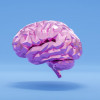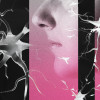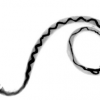False memory helps us think but we can’t do it when we’re tired
IT PAYS to have false memories. Our brains use them to generalise new information – but lack of sleep gets in the way.
False memory was discovered in an experiment that asked volunteers to memorise lists of related words and then recall them. When they learned “bed”, “drowsy” and “dream”, about half later also remembered the word “sleep”. That’s because well-rested brains normally use “associative memory” to link related concepts together. “There’s a lot of evidence that the brain cares less about individual data and more about the gist of it or what it means,” says Alex Chatburn at the University of South Australia in Adelaide.
Chatburn and his team have found that sleep deprivation inhibits this. They asked 44 people to memorise lists of words when they were well rested, had slept for only four hours on each of the previous four nights, or hadn’t slept at all for the past 30 hours. Unsurprisingly, when they were immediately asked to recall these words, the volunteers did less well when partially or completely sleep-deprived. But when shown a new list and asked which ones had been on the original list, sleep-deprived people were less likely to misremember.










































































